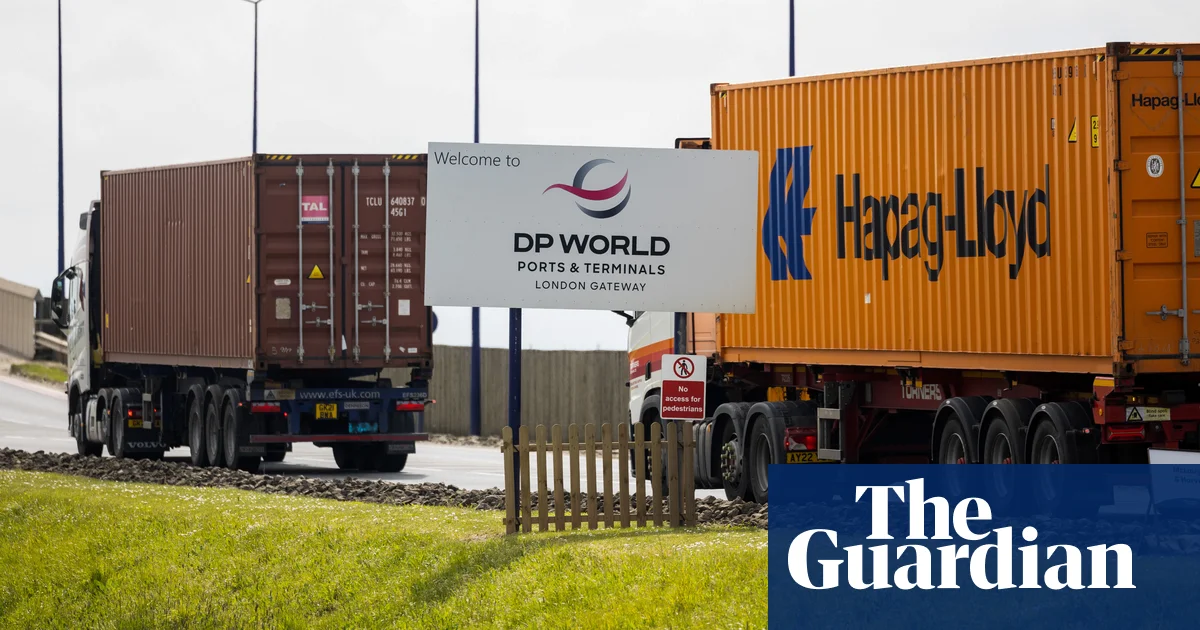Exports of British food to the EU have dropped by nearly £3bn a year since Brexit, a trade thinktank has said, with new physical and documentary checks at the border complicating trade.
A report by the Centre of Inclusive Trade Policy (CITP) has found that the export of UK food and agricultural products to the EU has fallen by more than 16% on average across the three years since Britain left the single market, when compared with the three years before the exit.
The drop equates to £2.8bn fewer exports a year travelling to the bloc from Britain.
The report said that, while the fall coincided with events such as the fallout from the Covid pandemic and Russia’s full-scale invasion of Ukraine, trade flows between the UK and EU, particularly the export of British goods, had shown no signs of returning to previous levels.
Campaigners and industry groups have urged Keir Starmer to push ahead with Labour’s manifesto promise of securing a veterinary deal , known as an SPS agreement, with the EU to remove barriers to trade.
The UK officially left the single market on 1 January 2021, and became regarded as a “third country” The bloc immediately brought in new border checks for agri-food products travelling from Britain including health certificates, as well as physical checks at the border.
After three years of delays, the UK government brought in reciprocal measures for plant and animal goods imports in January and physical checks were introduced in April.
The move was largely to limit importing plant and animal diseases into the UK.
However, the CITP report said many industry organisations found the new certification and associated regulatory measures for imports and exports were proving to be a “major obstacle” for growth and a source of significant extra costs.
The Guardian reported in August that exporters of meat and dairy products had forked out more than £205m on export health certificates since the UK left the single market.
The Labour government promised closer alignment with the EU in its election manifesto, with a veterinary agreement, which it believes would prevent unnecessary border checks and reduce the cost of trade.
However, there has yet to be any progress on this and experts have warned that these negotiations could still take years to complete.
The paper also found that since Brexit the EU and UK have diverged in a number of areas, and the EU had introduced stricter standards in areas including around pesticides, veterinary drugs and packaging rules, while the UK has tighter rules on animal welfare.
skip past newsletter promotion
Sign up to Business Today
Get set for the working day – we’ll point you to all the business news and analysis you need every morning
Privacy Notice: Newsletters may contain info about charities, online ads, and content funded by outside parties. For more information see our Privacy Policy. We use Google reCaptcha to protect our website and the Google Privacy Policy and Terms of Service apply.
after newsletter promotion
The CITP said that free movement of goods would be achieved through the harmonisation of regulatory requirements and that the divergence had led to even more border barriers which was hitting trade.
It added: “A more ambitious, and effective, SPS agreement will require both sides to navigate and define the flexibilities in their Brexit-era ‘red lines’.
“In practice, this requires taking stock of the divergence that has occurred since Brexit – in the substance and process of legislation, and in wider strategy for the sector.”
Emma Knaggs, the deputy chief executive of European Movement UK, said: “The government needs to negotiate a new SPS agreement with the EU that reduces the need for animal health checks and veterinary involvement, smooths trade across the Channel, and crucially, dramatically cuts the amount of post-Brexit red tape for UK exporters.
“Brexit has increased costs, spawned previously undreamt-of bureaucracy and seriously damaged trade.”
A government spokesperson said: “We have been clear that a veterinary or SPS agreement could boost trade and deliver significant benefits on both sides.
“Final arrangements are subject to negotiations but the UK and EU have similarly high standards.”





